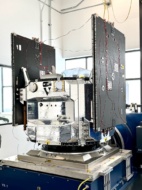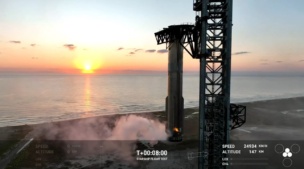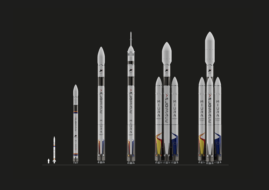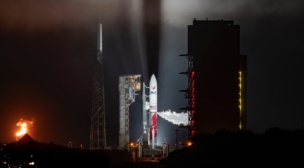Last week, Georgia’s Supreme Court upheld a referendum in which residents voted to block Camden county from building a spaceport.
The legal challenge by Camden County Commissioners, who sought to have the referendum declared invalid, was rejected unanimously.
The backstory: Spaceport Camden has been a contentious issue in the county for over a decade, with residents and the National Park Service expressing concerns about potential environmental and safety hazards. The proposed flight path for the rockets would have sent them over Little Cumberland Island, an area densely populated with homes and a federally protected wilderness. In March, opponents forced a referendum on the project and the final tally showed 72% of voters siding with halting the project.
The latest: The court’s decision could be the nail in the coffin for Spaceport Camden, an economic development project that was expected to facilitate orbital launches. Over the years, the project consumed $12M in taxpayer dollars.
Given the recent news, we thought it’d be fitting to provide an overarching update of spaceport activity around the Lower 48…and Alaska!
Spaceports around the US: the 30,000 ft. view
What’s cold?
Camden county holds the only spaceport license in Georgia and represents one of just 14 FAA-licensed pads across the country. Alabama, Colorado and Oklahoma also hold spaceport licenses but have not sent payloads to space for various reasons:
- Huntsville Reentry Site is the newest spaceport in the US, awarded to Huntsville International Airport in May 2022. Sierra Space plans to use the site for its Dream Chaser vehicles returning from future ISS resupply missions.
- Colorado Air and Space Port (CASP), six miles from Denver International, received its horizontal-launch license in the summer of 2018. CASP has officially partnered with three companies in advance of becoming a fully-functioning launch site: Reaction Engines, PD Aerospace and Dawn Aerospace.
- Oklahoma Spaceport, aka Clinton-Sherman Industrial Airpark, worked with two now-defunct suborbital spacecraft companies, Rocketplane Kistler and Armadillo Aerospace, in the early ‘10s, but the site has been attractive primarily to large aerospace companies such as Boeing due to the length and size of its runway.
What’s hot?
In terms of orbital activity, it should come as no surprise that Florida dominates the US launch landscape. The Sunshine State has hosted 172 licensed launches since 2010, with California next at 45 (between Vandenberg and Mojave) and Texas at 24 (between Blue Origin’s West Texas launchpad and SpaceX’s Boca Chica orbital-class pad).
- SpaceX rules the roost, responsible for 195 licensed launches (or nearly 62% of all 2010–2023 launches).
- New Mexico’s Spaceport America has hosted 10 licensed launches—30% of which were crewed—since 2010.
- While the Lower 48 host the vast majority of US launches, the Pacific Spaceport Complex in Kodiak, Alaska, has hosted eight licensed launches since 2018. Seven were Astra; one was ABL Space Systems.
Kiwi cameo: New Zealand has hosted 32 US-licensed launches. Rocket Lab is an American corporation but launches from Mahia Peninsula in New Zealand, and only just recently flew its first mission from US soil. Virginia Is For Launch Lovers lifted off in January from the Mid-Atlantic Regional Spaceport in Wallops, VA. (BTW, Wallops has hosted 19 licensed launches since 2010.)
Across the pond: The UK has hosted one US-licensed air launch—Virgin Orbit’s Start Me Up—which ended in failure.



